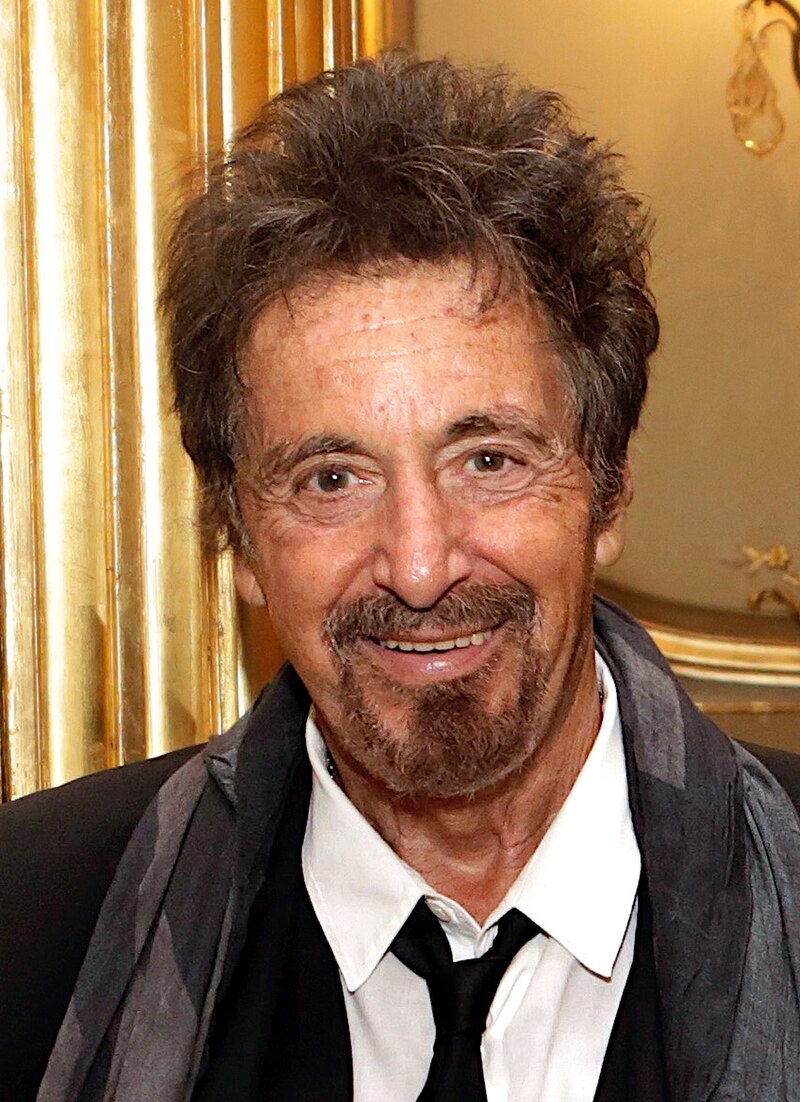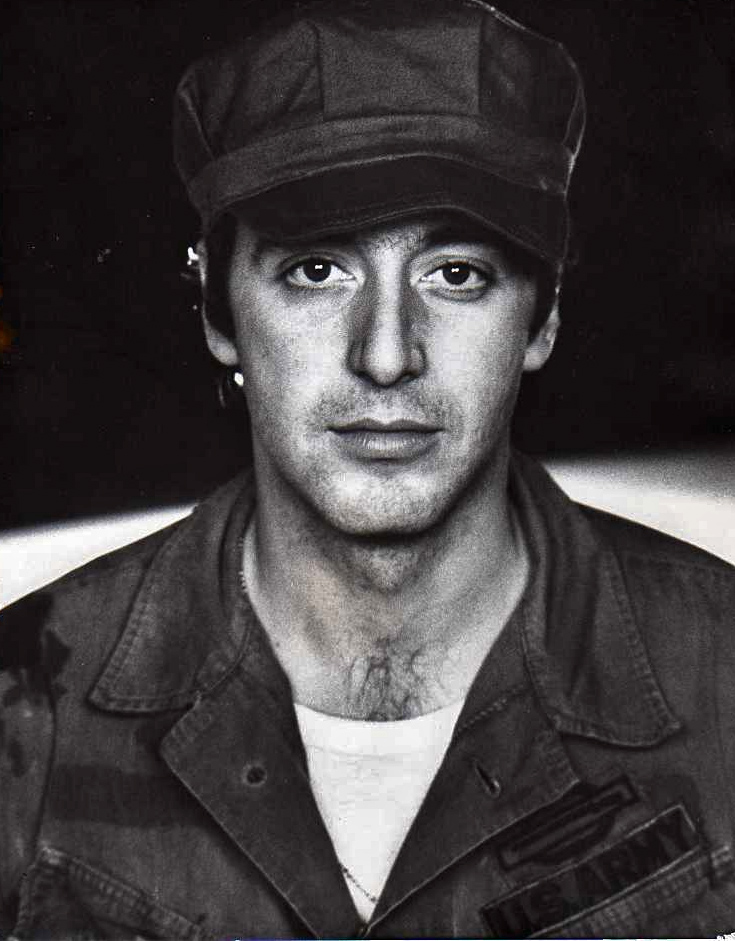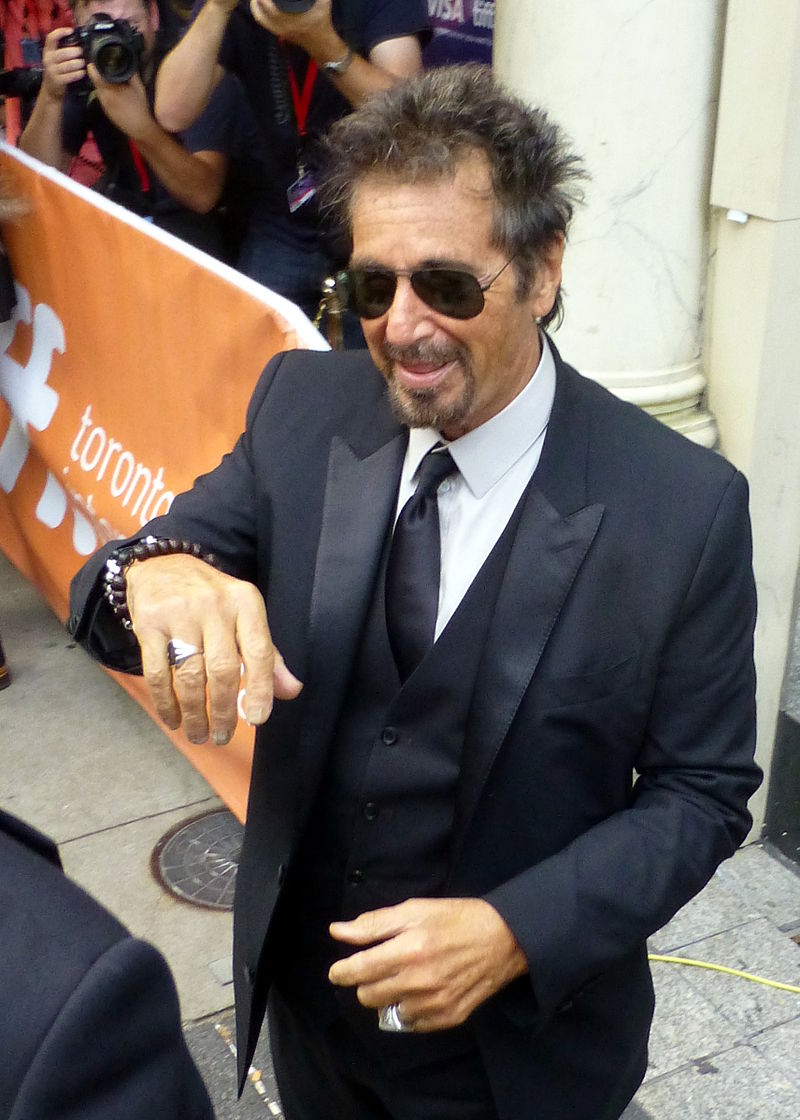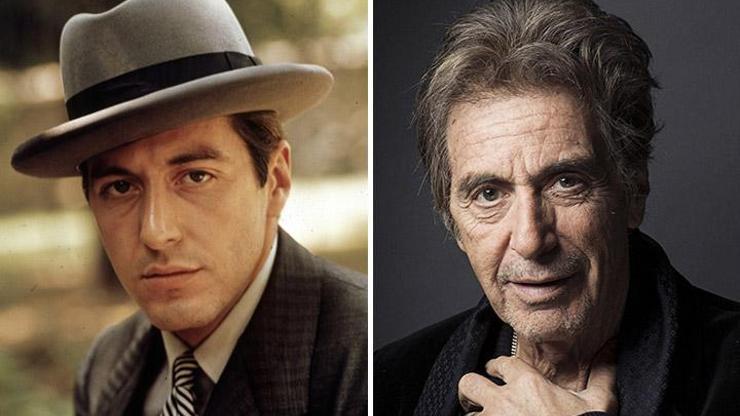Al Pacino
Al Pacino

Alfredo James Pacino, born on April 25, 1940, is an esteemed American actor known for his profound influence on 20th-century cinema. Throughout his illustrious career, Pacino has garnered numerous awards, including an Academy Award, two Tony Awards, and two Primetime Emmy Awards, thereby achieving the esteemed Triple Crown of Acting. Additionally, he has been honored with four Golden Globe Awards, a BAFTA, two Screen Actors Guild Awards, the Cecil B. DeMille Award in 2001, the AFI Life Achievement Award in 2007, the National Medal of Arts in 2011, and the Kennedy Center Honors in 2016.
A devoted method actor, Pacino honed his craft at the HB Studio and the Actors Studio under the tutelage of renowned mentors such as Charlie Laughton and Lee Strasberg. He earned widespread acclaim and the Academy Award for Best Actor for his portrayal of a blind retired Army officer in "Scent of a Woman" (1992). Pacino's illustrious career boasts numerous Oscar-nominated performances, including his iconic roles in "The Godfather" (1972), "Serpico" (1973), "The Godfather Part II" (1974), "Dog Day Afternoon" (1975), "...And Justice for All" (1979), "Dick Tracy" (1990), "Glengarry Glen Ross" (1992), and "The Irishman" (2019).
Beyond the silver screen, Pacino has graced television audiences with compelling performances in HBO productions such as "Angels in America" (2003) and the Jack Kevorkian biopic "You Don't Know Jack" (2010), earning Primetime Emmy Awards for Outstanding Lead Actor in a Miniseries or a Movie for each. Pacino also starred in the Amazon Prime Video series "Hunters" (2020–23). His theatrical endeavors have been equally impressive, earning him two Tony Awards for his roles in "Does a Tiger Wear a Necktie?" (1969) and "The Basic Training of Pavlo Hummel" (1977).
Pacino ventured into directing with the documentary "Looking for Richard" (1996), in which he also portrayed the lead role. He further showcased his directorial talents with adaptations of "The Merchant of Venice" in 2004 and 2010, in which he starred as Shylock. Additionally, Pacino directed and starred in "Chinese Coffee" (2000), "Wilde Salomé" (2011), and "Salomé" (2013). Since 1994, he has served as the joint president of the Actors Studio, further cementing his legacy as one of the most esteemed figures in the entertainment industry.
Alfredo James Pacino, born on April 25, 1940, entered the world in the vibrant neighborhood of East Harlem, Manhattan, New York City. He was the only child of Sicilian Italian-American parents, Rose (née Gerardi) and Salvatore Pacino. Sadly, his parents parted ways when Pacino was merely two years old, leading him to relocate with his mother to the South Bronx to reside with his maternal grandparents, Kate and James Gerardi, who hailed from Corleone, Italy. Meanwhile, Pacino's father, originally from San Fratello, ventured to Covina, California, where he pursued work as an insurance salesman and restaurateur.
During his formative years, Pacino was affectionately known as "Sonny" by his peers and harbored dreams of pursuing a career in baseball, earning him the nickname "The Actor." Despite his academic struggles, Pacino displayed a knack for English and secured admission to the High School of Performing Arts after an audition, a decision met with resistance from his mother. Following a disagreement, Pacino left home and supported himself through various menial jobs while pursuing his passion for acting. His journey into the world of theater was marked by encounters with hardship, homelessness, and the tragic loss of close friends to drug abuse.
In the face of adversity, Pacino remained resilient, seeking refuge in his craft and immersing himself in the study of method acting under the guidance of mentors like Charlie Laughton at the HB Studio. His perseverance paid off when he successfully auditioned for the prestigious Actors Studio, where he honed his skills under the tutelage of renowned acting coach Lee Strasberg. Pacino credited the Actors Studio as a pivotal influence in his career, acknowledging its role in shaping his artistic trajectory and providing him with the opportunity to fully commit to acting.
Over the years, Pacino's dedication to his craft and his remarkable talent garnered him widespread recognition and acclaim, leading to his co-presidency of the Actors Studio in 2000 alongside fellow luminaries Ellen Burstyn and Harvey Keitel. Throughout his illustrious career, Pacino's contributions to the world of cinema, television, and theater have left an indelible mark, solidifying his status as one of the most revered actors of his generation.
Al Pacino's journey in the world of theater was marked by numerous notable performances and accolades. In 1967, he embarked on a season at the Charles Playhouse in Boston, showcasing his talent in Clifford Odets' "Awake and Sing!" and Jean-Claude Van Itallie's "America Hurrah." It was during this time that he met actress Jill Clayburgh, with whom he shared a five-year romance.
The following year, in 1968, Pacino made a significant breakthrough with his role as Murph, a street punk, in Israel Horovitz's "The Indian Wants the Bronx" at the Astor Place Theatre. His compelling portrayal earned him an Obie Award for Best Actor, setting the stage for his burgeoning career. It was during this period that Pacino's partnership with manager Martin Bregman began to flourish, leading to pivotal roles in iconic films such as "The Godfather," "Serpico," and "Dog Day Afternoon."
Pacino's theatrical endeavors extended beyond the borders of the United States when he took "The Indian Wants the Bronx" to Italy for a performance at the Festival dei Due Mondi in Spoleto. His Broadway debut followed in 1969 with "Does a Tiger Wear a Necktie?" at the Belasco Theater, a performance that garnered critical acclaim and earned him a Tony Award.
Throughout the 1970s and beyond, Pacino continued to captivate audiences with his stage presence, winning a second Tony Award for his role in "The Basic Training of Pavlo Hummel" and delivering memorable performances in productions such as "Richard III" and David Mamet's "American Buffalo." In 2010, he returned to Broadway in the acclaimed production of "The Merchant of Venice," earning further acclaim and a Tony Award nomination.
Pacino's commitment to the stage remained unwavering, as evidenced by his participation in notable productions such as the 30th-anniversary revival of "Glengarry Glen Ross" in 2012 and David Mamet's "China Doll" in 2015. His contributions to the theater landscape have been immense, solidifying his legacy as one of the most formidable talents in the realm of acting.

References
- "Ready for My deMille: Profiles in Excellence - Al Pacino, 2001". Golden Globe Awards. June 2020. Retrieved January 1, 2023.
- ^ "Pacino 'overwhelmed' by AFI honor". The Hollywood Reporter. June 11, 2007. Retrieved January 1, 2023.
- ^ "Al Pacino accepts National Medal of Arts at White House". BBC News. February 14, 2012. Retrieved January 1, 2023.
- ^ "Kennedy Center Honors: Al Pacino, The Eagles, James Taylor Among Those Feted". The Hollywood Reporter. December 4, 2016. Retrieved January 1, 2023.
- a b c d e f g h i j k l Grobel, Lawrence (2006). Al Pacino: The Authorized Biography. London: Simon & Schuster. ISBN 9780743294973. Retrieved November 21, 2022.
- a b c d e f g Yule, Andrew (1992). Al Pacino : Life on the Wire. Time Warner Books. ISBN 0751500488. Archived from the original on November 14, 2020. Retrieved October 30, 2020.
- a b c d e f g h "Al Pacino Biography". The Biography Channel. Archived from the original on April 29, 2014. Retrieved March 10, 2010.

































